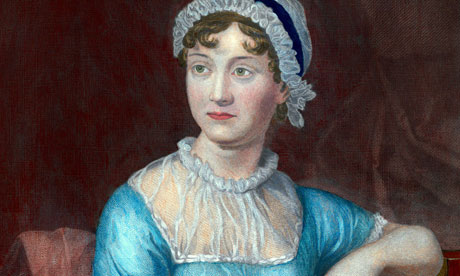
The Friday Digest brings you the best of the week's history news gathered from the experts:

* The Edinburgh Book Festival is celebrating its 30th anniversary this year, between 10th and 26th August, with more than 800 authors taking part in 700 events. Edinburgh was listed as the first UNESCO City of Literature in 2004 and with literature at the very heart of the city, there is no more appropriate location to hold a book festival.
To celebrate both the festival and a love of reading, Guardian Books has been asking, why does reading matter to you?

* Most of us would describe the library as a peaceful space where silence rules but the Wellcome Library won't be getting much of that since building work kicked off earlier this week. To help drown out the noise, they have put together a library playlist and are asking for your recommendations...
* The Huffington Post in Canada has gathered a list of the best books to read in your 20s, 30s, 40s, 50s And 60s, which books are missing from their list?
* 5 depressingly honest titles for classic children's books
* Literary ice cream - what's your flavour? This was an article that really cheered me up earlier this week, I think Captain Corelli's Mandarin may be my favourite!
* A rare book dealer explains how the Kindle has turned him off paper books.
* Why authors need to join the PR circus (we promise it is for your benefit!)
* Book groups are a fantastic way to discover new books but what happens when you don't have one locally? Enter Mashable Reads, your new social book club...
* Writer Seth Godin explains why vilifying Amazon makes no sense.

* Got some spare cash? Brompton tube station, which was used as a WWII anti-Luftwaffe command centre is being sold by the Ministry of Defence next month. Apparently, it could be turned into housing above ground so combined with the location (between Harrods and the Victoria and Albert Museum) I imagine this will fetch a pretty penny!

* Victorian and Edwardian asylums have always been controversial, for some they provided a refuge but for many others, they were just enforced incarceration for those suffering from stress, postnatal depression and anxiety. But since their closure, many abandoned asylums lie derelict.
Author James Scudamore and BBC Radio 4 recently took a look around the empty Severalls Hospital in Colchester, where redevelopment is planned before the doors finally slam shut.

* There is no doubt that Leonardo Da Vinci was a truly remarkable artist and inventor but if there was ever any question about how advanced he was for his time, the answer lies in his anatomical drawings. Despite nearly 500 years of technical and medicinal advancements, these remarkable Renaissance artworks still influence medical artists today and are still used in teaching medicine.

* From severed horses legs to fairies, many unconvential weapons have decided Scottish conflicts, but which is the strangest to have been used in battle?

* We often hear news about endangered or extinct animals (who can forget the dodo?) but what impact did their deaths have on the ancient landscape?
* Potentially a bit of a morbid question for a Friday afternoon but the BBC discusses how humans are going to become extinct. The Swedish-born director of the institute, Nick Bostrom, says the stakes couldn't be higher. If we get it wrong, this could be humanity's final century.

* Rare evidence that humans lived on the River Thames 9,000 years ago has been discovered by archaeologists working on the Crossrail project.

* The British medic, the US Doughboy and the French post mistress: a tale of love and bravery in the First World War.





* Marilyn Monroe sang that diamonds are a girl's best friend and the Hope Diamond is recognized around the world as a standard of value and perfection. Find out more about this iconic jewel here with podcasts from 'Stuff You missed in History Class' (The Mysterious Hope Diamond, Pt. 1 here and The Mysterious Hope Diamond, Pt. 2 here).

Which history and publishing stories have you enjoyed reading this week?